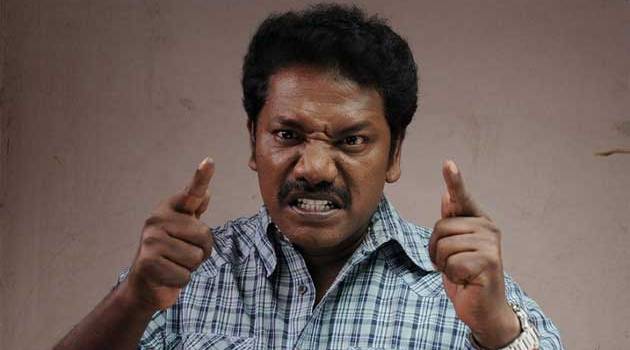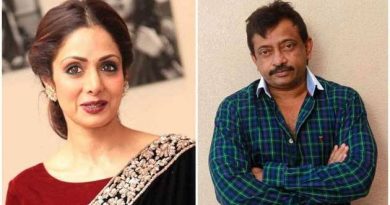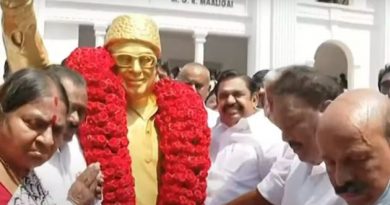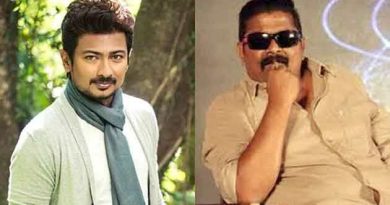கருணாஸ் தூண்டுதலால் தலித் குழந்தைகள் மீது பாலியல் பொய்வழக்கு பதிவு!

திரைப்பட நடிகரும், முக்குலத்தோர் புலிப்படை தலைவரும், ஜெயலலிதா ஆதரவுடன் தேர்தலில் போட்டியிட்டு எம்எல்ஏ ஆனவருமான கருணாஸ் கொடுத்த அழுத்தம் மற்றும் தூண்டுதல் காரணமாகவே 9 வயதுக்கு உட்பட்ட 5 தலித் குழந்தைகள் மீது பாலியல் பலாத்கார பொய்வழக்கு பதிவு செய்யப்பட்டுள்ளது என்று போலீஸ் தரப்பில் கூறப்பட்டுள்ளது.
“Tamil Nadu: MLA gives school scuffle caste colour, 5 Dalit children booked under POCSO” என்ற தலைப்பில் indianexpress.com வெளியிட்டுள்ள விரிவான செய்தி:-
FIVE Dalit children below the age of nine, including a girl, have been booked under the Protection of Children from Sexual Offences (POCSO) Act at a village near Madurai for allegedly sexually harassing children from the dominant Thevar community on Friday.
The incident was “a minor scuffle” between children on their way to school on Friday morning but local police registered a case following repeated demands over phone from an AIADMK MLA and some of his partymen, a senior police officer told The Indian Express.
Police sources identified the MLA as film actor A Karunas, who had contested the recent assembly polls under the ruling party’s symbol on behalf of Mukkulathor Pullippadai, an outfit of Thevars, a socially and politically powerful OBC community with supporters in the Madurai and Ramanathapuram regions in southern Tamil Nadu.
When contacted, Karunas denied that he or anyone from his party had any role to play in the case being charged against the children from Ulaipatti village in Usilampatti. “Some partymen told me about this case. But we did not intervene,” he said.
DySP S Ramakrishnan of Usilampatti said that he had “never handled such an unfortunate case in my career”. “It could have been settled amicably but there was huge pressure from the community. Now that the POCSO Act has been enforced, the juvenile justice board will decide their fate,” he said, adding that exemption normally given to children below the age of 10 may help the Dalit children.
Police sources said they found “no injury marks on the children from both sides, except a small mark caused by a nail on one child”.
Describing the sequence of events, local police said the clash took place when the Dalit children were playing by the road next to their school and a group of Thevar children crossed their path to reach another school nearby.
“Both parties agree that one of the Thevar students, a 10-year-old, had called one of the Dalits using a nickname. The agitated Dalit child threatened to pelt a stone, which led to threats from the Thevars. Heated arguments and a minor scuffle followed. All of them were below the age of nine, including girls. But as it happens in any such quarrel among children, they headed back to their own schools,” said police sources.
“But a teacher belonging to a non-Dalit community decided to take up the issue, and parents of the Thevar students soon arrived to question the Dalits in their classrooms. They also filed a petition at the police station with Thevar politicians calling up the inspector and DySP, asking them to register a case,” said sources.
A teacher at the school, where the Dalits study, said the children tried to hide after realising that police were coming to catch them. “They hid behind bushes and trees for more than two hours as their parents searched for them. Finally, police came and questioned them even as the children started crying loudly,” said the teacher.
Police said the parents of the Dalit children were daily-wage labourers, including some working in Kerala, while the Thevar children, too, hailed from poor families of farm-workers.
Police said a case was registered based on a complaint from S Velusamy, the father of one of the Thevar children, and the five Dalits were booked under IPC sections 341 (punishment for wrongful restraint); 294-b (sing, recite or utter any obscene song, ballad or words); 324 (voluntarily causing hurt by dangerous weapons or means); 596-ii (punishment for criminal intimidation) and under the POCSO Act.
According to police sources, Dalits in the village have been subjected to discrimination earlier, too, and pointed to the state of affairs at the local anganwadi as an example.
“It has two separate rooms for Dalits and non-Dalits, mostly Thevars who form the majority in the village. They are not allowed to have their meals together. There are separate tumblers and floor mats for Dalits. The Dalit children are not allowed to use chairs, too. We are used to such discrimination,” said the mother of a child at the anganwadi.



